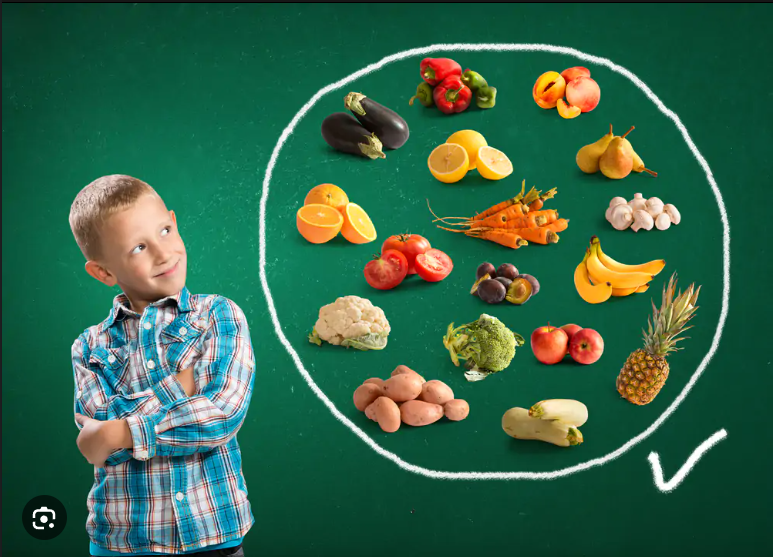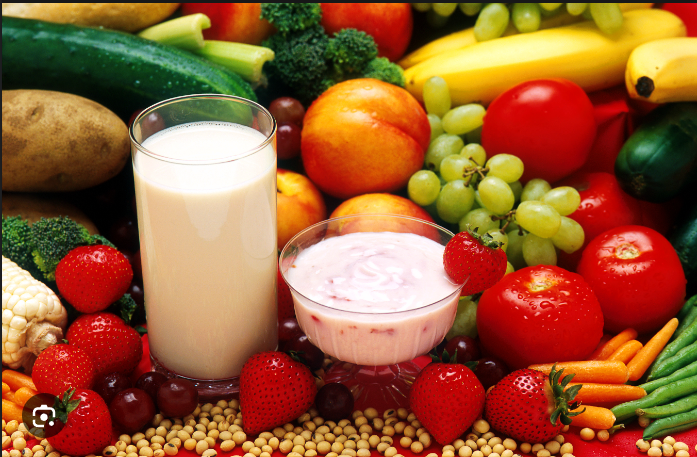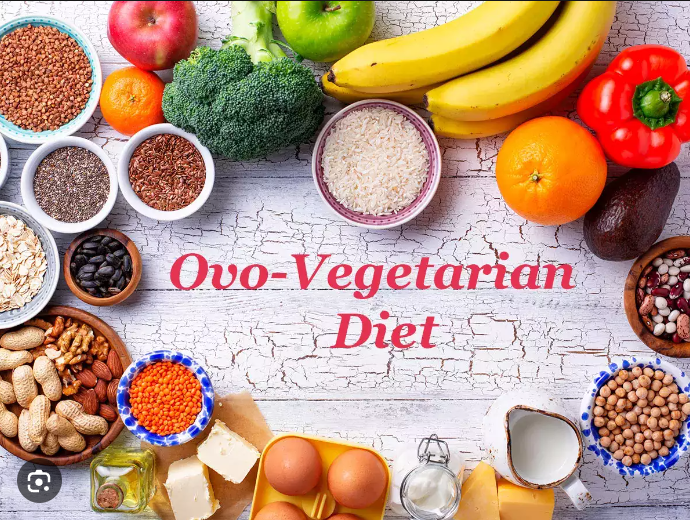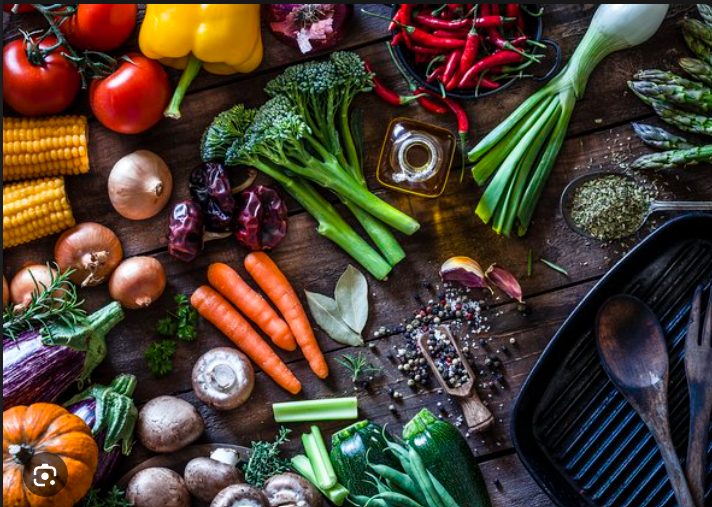Learn more about the many vegetarian diet, their advantages, and the best one for your needs and well-being.
There are undoubtedly many eating approaches and diet trends, but the one diet that continues to be popular among Americans is the vegetarian diet.

Also read-The Ultimate Diet Plan: Rich In Protein And Vitamin
A Gallup poll on consumption trends conducted in August 2023 found that 4% of Americans consider themselves vegetarians. Even if that number hasn’t changed much over time, there is a growing tendency toward a more plant-based diet. According to a 2020 Gallup study, over one in four Americans said they consumed less meat than they did the year before, with 70% of respondents citing health concerns as the main factor behind their decrease in meat intake. Concerns over the environment, food safety, and animal welfare were the top three reasons given by respondents for either abstaining from eating meat or cutting it out of their diets, in addition to personal health.
There is no one perfect vegetarian diet, but there are many different kinds of vegetarianism, each with unique benefits, drawbacks, and constraints. It is crucial to understand the distinctions if you are interested in switching to a more plant-based lifestyle.
Why Choose a Vegetarian Diet?
For environmental considerations, particularly in relation to the impact of cattle raising on climate change, people may decide to adopt a vegetarian diet.

According to research conducted by the UN Food and Agriculture Organization, the production of animals is thought to be responsible for 14.5% of greenhouse gas emissions worldwide. According to 2022 research published in PLOS Climate, if global producers and consumers gradually switched from a carnivorous diet to a plant-only diet over the next 15 years, it would reduce greenhouse gas emissions enough to offset emissions from other sectors, including transportation and energy, for the next 30 to 50 years.
Studies Support the Benefits of Vegetarianism
Plant-based diets are densely packed with nutrients, such as fiber, healthy unsaturated fats, protein, vitamins, and minerals, that have been clinically shown to lower LDL (“bad”) cholesterol, reduce inflammation, and boost your immune system.

Plant-based diets are associated with:
- Cardiovascular health.
- Lower blood pressure.
- Weight management.
- Reduced risk of type 2 diabetes.
- Diabetes management.
- Cognitive health.
- Reduced risk of certain types of cancer.
People may choose to switch to a vegetarian diet due to environmental concerns, especially those pertaining to the effect of cow production on climate change.
The UN Food and Agriculture Organization’s research indicates that 14.5% of global greenhouse gas emissions are believed to be caused by the production of livestock. Global producers and consumers could offset greenhouse gas emissions for the next 30 to 50 years if they gradually transitioned from a carnivorous diet to a plant-only diet over the course of the next 15 years, according to research from 2022 that was published in PLOS Climate.
Types of Vegetarian Diet
The vegetarian diet comes in various forms:
- Flexitarian diet.
- Lacto-ovo vegetarian diet.
- Lacto-vegetarian diet.
Flexitarian diet.
The least restrictive vegetarian diet is known as the flexitarian diet, a combination of the terms “flexible” and “vegetarian.” While most flexitarian meals are plant-based, those who adhere to this semi-vegetarian eating pattern occasionally eat meat, fish, chicken, and other animal items. Fears claims that while plant-based diets are preferred by vegans, they are nevertheless open to consuming modest amounts of any animal product. “Eating a plant-based diet can be more sustainable for many people if they are able to occasionally consume animal products.” You can enjoy all the health advantages of a vegetarian diet without having to make significant dietary adjustments when you follow a flexitarian diet. Thus, it should come as no surprise that U.S. News listed the flexitarian diet as the second-best diet overall.

Health benefits
A flexitarian diet has several benefits, such as:
- Empirical evidence indicates that the flexitarian diet, akin to other vegetarian eating plans, might enhance individuals’ general well-being and mitigate their susceptibility to chronic ailments like cancer, Type 2 diabetes, and cardiovascular disease.
Health risks
There are no known health risks of disadvantages associated with the flexitarian diet.
Foods to eat
- Fruits.
- Vegetables.
- Nuts and seeds.
- Legumes.
- Grains
- Meat, dairy and eggs – in limited amounts.
Foods to avoid
The beauty of the flexitarian diet is that it doesn’t eliminate any foods or food groups. It simply encourages people to moderate intake of meat, dairy and egg products.
Lacto-Ovo Vegetarian Diet
Stemming from the Latin word “lacto” for milk and “ovo” for egg, this vegetarian diet allows the consumption of dairy and egg products, while eliminating meat, poultry and fish. For most people, this is a healthy diet.

Health benefits
Advantages of the lacto-ovo vegetarian diet include:
- Less risk of low intake of vitamins and iron compared to some other vegetarian diet options.
- Getting enough calcium shouldn’t be a concern.
Health risks
The lacto-ovo vegetarian diet’s drawbacks include:
- You should still make an effort to get adequate iron and vitamin B12 in your diet, even though the risk is reduced. This could entail taking over-the-counter pills or loading your plate with meals high in iron and vitamin B12.
You must limit the amount of saturated fat that comes from milk and cheese. These foods may be high in saturated fat, which, according to research, may be linked to heart disease when ingested in large amounts.
Foods to eat
- Fruits.
- Vegetables.
- Nuts and seeds.
- Legumes.
- grains
- Dairy or plant-based milk products, including milk, cheese and yogurt.
Foods to avoid
- All animal meat.
- Fish and seafood.
- Eggs.
Ovo-Vegetarian Diet
An ovo-vegetarian diet would be ideal for you if you enjoy scrambled eggs but could live without dairy products. This type of vegetarian diet allows eggs and any meal that contains eggs but excludes meat, poultry, fish, and dairy products.

According to Jacks, “this diet has all the benefits of an egg-based diet plus the benefits of being vegan.”
Health benefits
Advantages of the ovo-vegetarian diet:
- Eggs are a good dietary source of iron, vitamin B12 and protein. One whole egg provides 6 grams of high-quality protein.
- Eggs are one of the richest sources of choline, a nutrient that helps the body’s brain and nervous system. One large, hard-boiled egg provides 27% of your daily value, with 147 milligrams per serving.
- Egg yolks are a good source of vitamin D.
Health risks
Disadvantages of the ovo-vegetarian diet:
- Egg yolks contain a significant amount of cholesterol, with one large egg containing about 186 milligrams of cholesterol, so you’ll have to watch your intake.
Foods to eat
- Fruits.
- Vegetables.
- Nuts and seeds.
- Legumes.
- Whole grains.
- Eggs.
Foods to avoid
- All animal meat.
- Fish and seafood.
- Dairy products.
For most healthy adults, one to two eggs a day should be healthy and safe, as long as eggs are part of a well-balanced and varied diet.
In previous years, experts and dietary guidelines recommended consuming no more than 300 milligrams of dietary daily for cardiovascular health. However, due to a lack of evidence between dietary cholesterol and cardiovascular risk, nutritional guidance was inconsistent.
Also read-Nutritionist-Recommended Healthy Frozen Meals: Easy Snacking Choices
Disclaimer: The opinions and suggestions expressed in this article are solely those of the individual analysts. These are not the opinions of HNN. For more, please consult with your doctor.
Images source-google




































